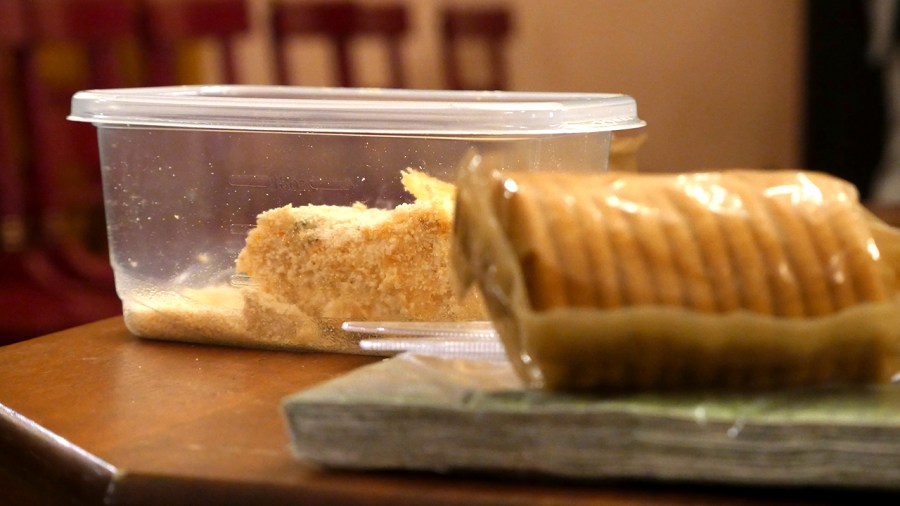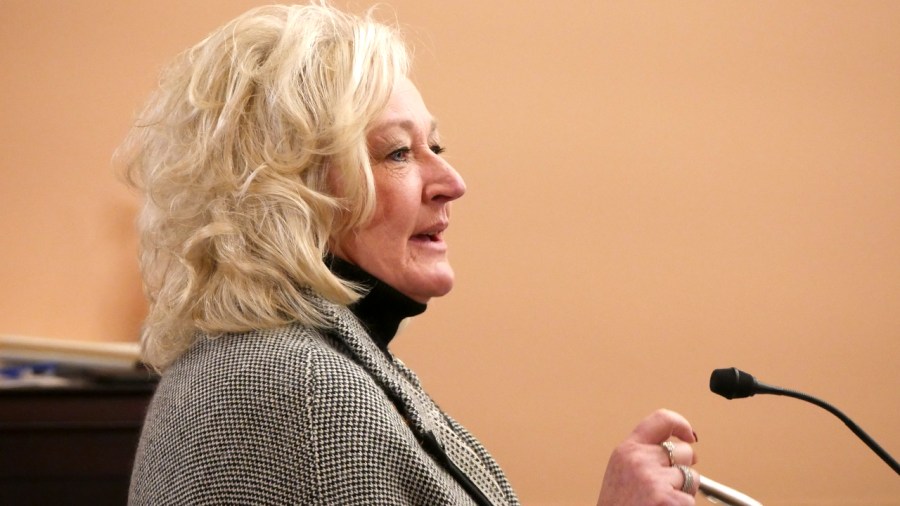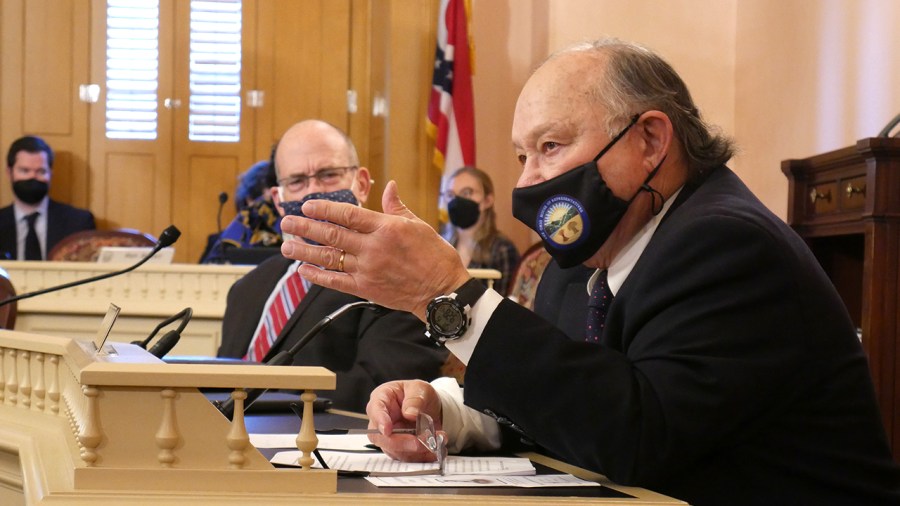COLUMBUS, Ohio (WCMH) — If the fastest way to a lawmaker’s vote is through his or her stomach, Ohio state Reps. Lisa Sobecki and Michael Sheehy may have cast the right hook.
The two Toledo-area legislators treated members of an Ohio House committee Tuesday to crackers and smoked walleye cheese dip, some bait to make the famous Lake Erie sportfish the state fish. Their House Bill 484 — along with an identical bill in the state Senate — is a joint effort with NBC4 to also inform Ohioans about state government processes.

Sobecki and Sheehy gave first testimony of HB 484 in the House Agriculture and Conservation Committee, outlining the bill’s purpose and taking questions from lawmakers.
“The Lake Erie walleye is an easily, easily recognizable fish and is also important to Ohio’s economy,” Sobecki said as legislative aide Benjamin Lynn passed out the walleye samples.
Erie is home to roughly half of the Great Lakes’ fish, Sobecki noted, making it one of the most valuable freshwater fisheries in the world. The nearly 100 million catchable walleye in the lake, she said, drive the $1 billion that Lake Erie fishing contributes to Ohio’s economy every year.
“While many of us associate the walleye as a Lake Erie product,” Sheehy said in his testimony, “these fish can be found throughout Ohio. Walleye are still found in the Ohio River, several of Lake Erie’s larger tributaries and are stocked in reservoirs throughout the state.”
Sheehy and Sobecki also talked about how people from near and far flock to Northwest Ohio every spring for the walleye run, when the fish rush down the Maumee River to spawn in Lake Erie.
“I can remember for years bicycling by the path near where anglers stood shoulder-to-shoulder and come from probably 10 states,” Sheehy said.
Questions from colleagues
The sponsor hearing is the first time lawmakers can ask questions to bill leaders on the record, and HB 484 prompted multiple ag committee members to speak.
The walleye bill is the result of an NBC4 audience poll on what should be Ohio’s state fish. Walleye won with 27.5% of the vote, beating yellow perch (20.8%), smallmouth bass (20.6%) and six others.
State Rep. Sarah Fowler Arthur (R-Ashtabula) said she didn’t know Ohio was without a state fish until learning of the bill, and she asked why walleye should be the state fish when the poll results were competitive.
“Overall, I think the fact that the walleye can be found statewide is significant,” Sheehy said, adding that many downstate Ohioans come north for the “extraordinary opportunity” to fish.
State Rep. Juanita Brent (D-Cleveland) asked later why the walleye is not instead being proposed as the state game fish. Sobecki reiterated the fish’s unmatched economic contribution and mentioned its cultural significance, including the famous Port Clinton walleye drop on New Year’s Eve and the Toledo Walleye hockey team.
“End of the day, it comes up as walleye each and every time,” she said.
Other lawmakers voiced their support for the bill, and state Rep. Joe Miller (D-Amherst) brought up an idea the sponsors had not thought of: The bill could stand as a reminder to support Lake Erie conservation efforts. State government already has multiple protections so that walleye can be plentiful for future generations.
What happens next?
Tuesday’s sponsor hearing saw no vote, as it was only the first step in the committee hearing process. Next will be either a proponents hearing or opponents hearing, where anyone from regular people to special interest groups can testify for or against the bill.
Sobecki told NBC4 after Tuesday’s hearing that her next move will be to draw support for the bill from interested parties so they can speak during a proponents hearing — if one is approved by state Rep. Kyle Koehler (R-Springfield), the ag committee chair, who has the ultimate authority.
“That’s where we could bring people in from the industry,” she said. “It could be from tourism, to charter boat captains, to just the everyday angler.”
Then would come an opponents hearing, where sponsors would listen to criticism and see if the bill needs amended. After supporters and challengers have had their say and amendments have been approved, it would be up to chair Koehler to put it up for a vote.
Once out of committee, the bill can go to the full House for a vote, upon which approval would send it to the Senate to do the entire process over again.













